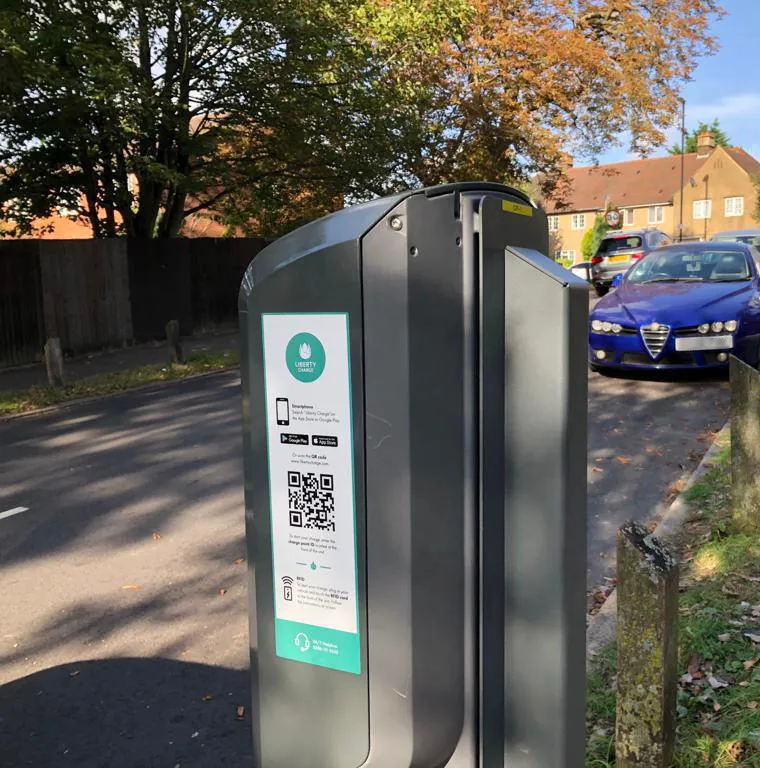
Liberty Charge has launched a charge point operator solution to tackle what it calls the chronic under-supply of easily accessible on-street charging in the UK.
Liberty says 40% of the UK’s urban residents having no access to off-street charging on a private driveway.
The charging facilities will help UK councils “meet a very clear public need” and support their local sustainability and clean air targets, the company adds.
As part of the commitment, Liberty is working with its delivery partner Virgin Media O2 to roll out an initial 500 electric vehicle (EV) charging sockets across the London boroughs of Croydon, Hammersmith & Fulham and Wandsworth by the end of 2021.
The deployment will also extend to West and North Northamptonshire Councils, to help address a deficit of on-street charging outside the capital.
According to Liberty, there are currently approximately 5,700 on-street charge points across the UK, with only 1,000 outside London.
The company will focus on accelerating this deployment in a bid to help meet one of the Government’s net zero goals of installing more than 120,000 EV charge points by 2025.
According to Liberty, this will also help accelerate the UK’s transition from fossil fuel powered vehicles to electric vehicles, as the Government works to phase out the sale of combustion powered cars by 2030.
Liberty CEO Neil Isaacson says the Government's target is a challenge with the current roll out rate.
“Local authority budgets are already under pressure and they often lack the capital expenditure to undertake such an investment,” he continues.
“By providing a fully-funded, reliable and convenient on-street solution, we can help local authorities make this national target a reality.”
Isaacson claims there are currently 11 million UK households with no driveway and no way of charging their vehicle off-street.
“With our strategy, and the support of our delivery partner, we can plug a huge gap in the market,” he concludes.








